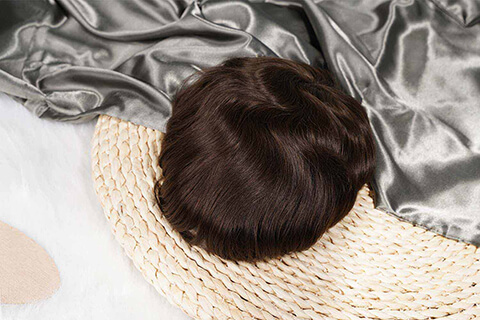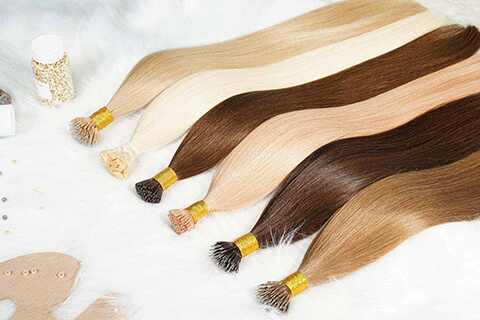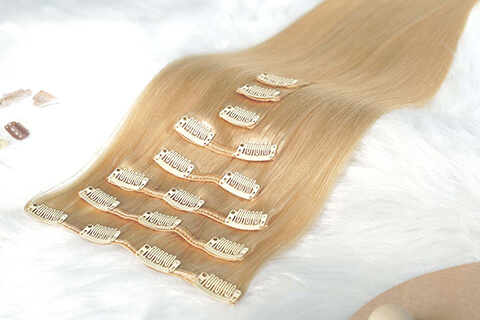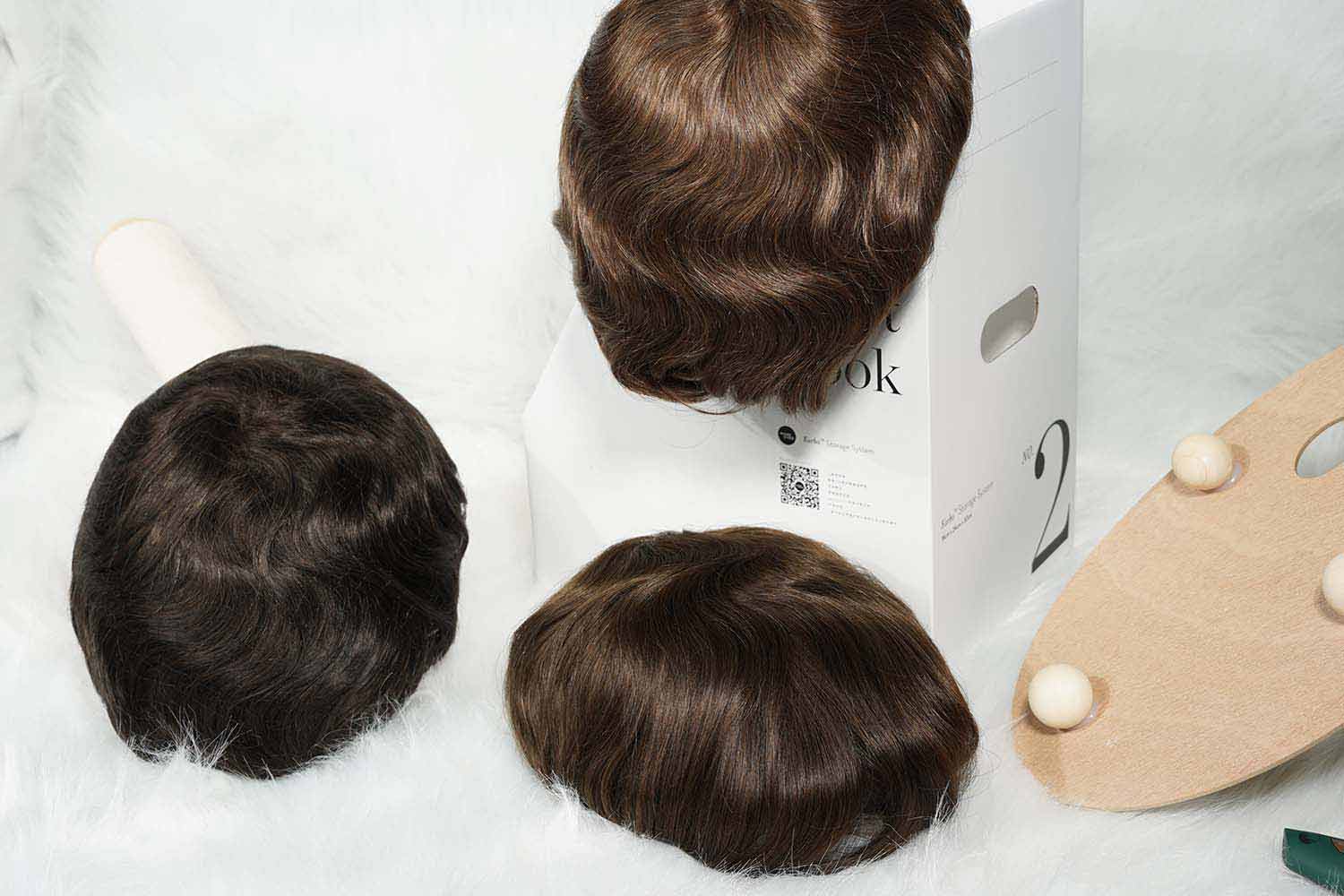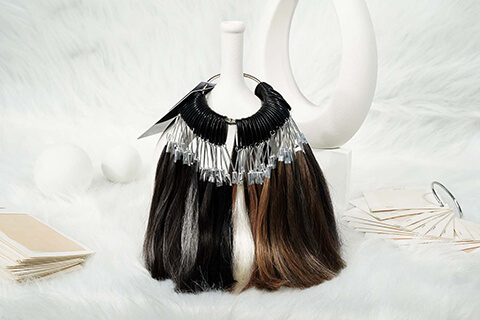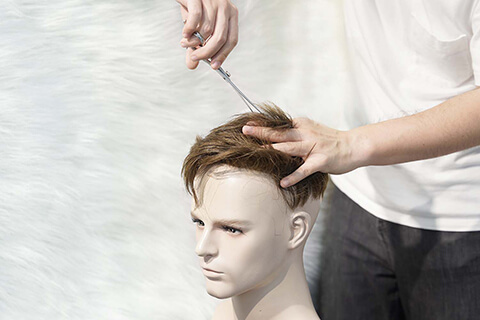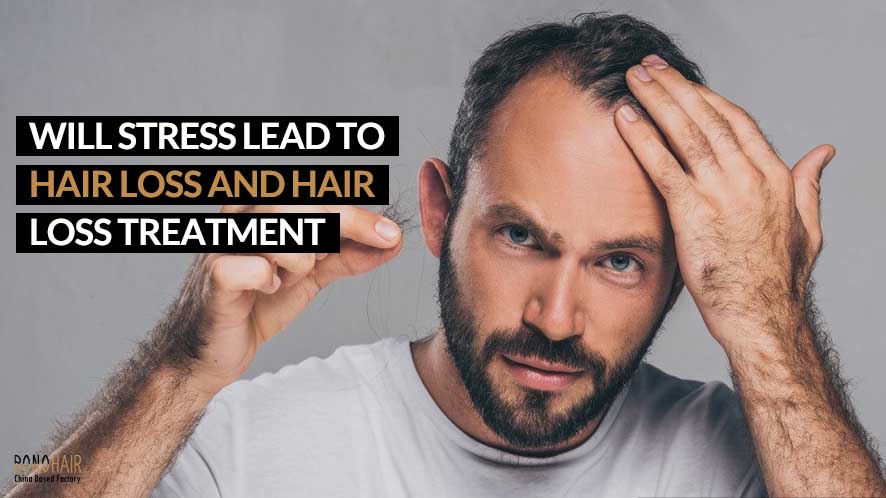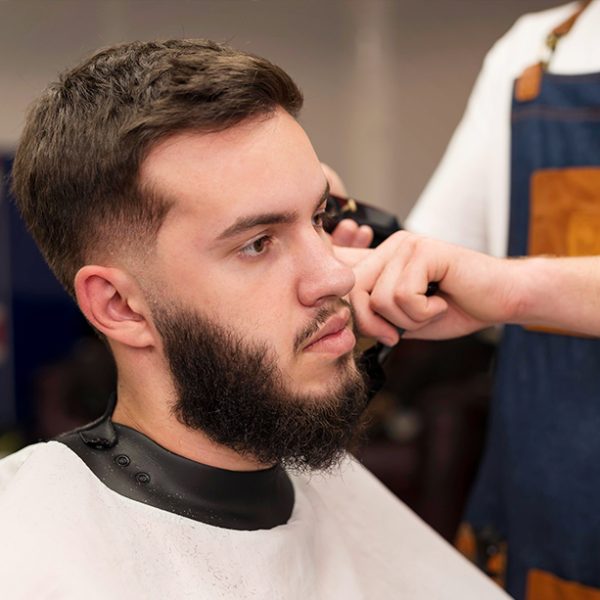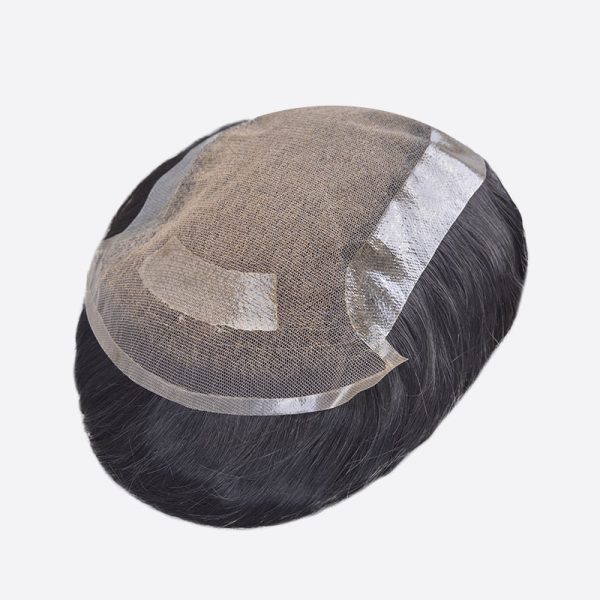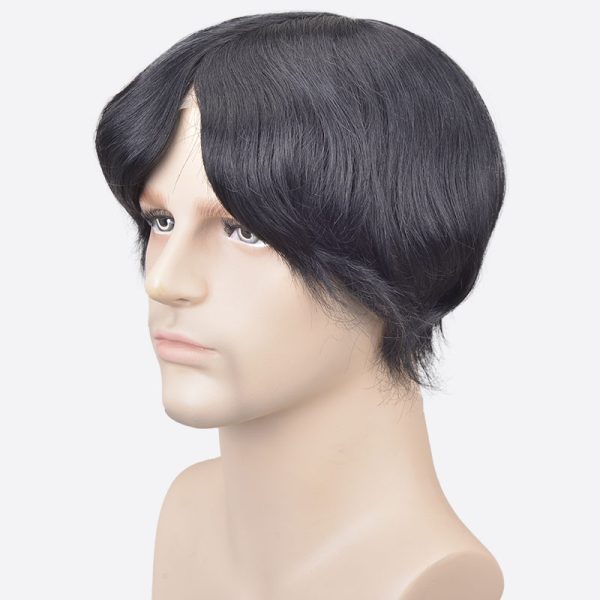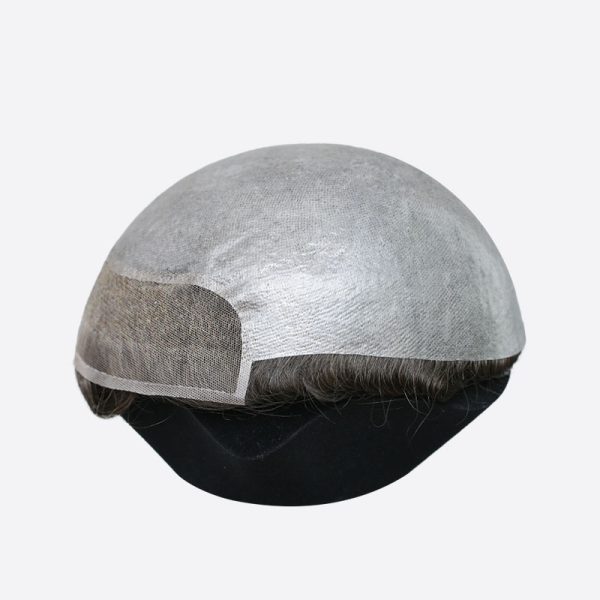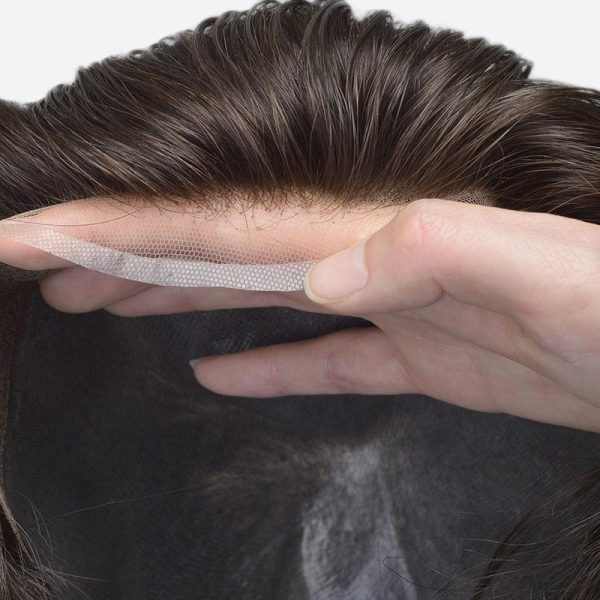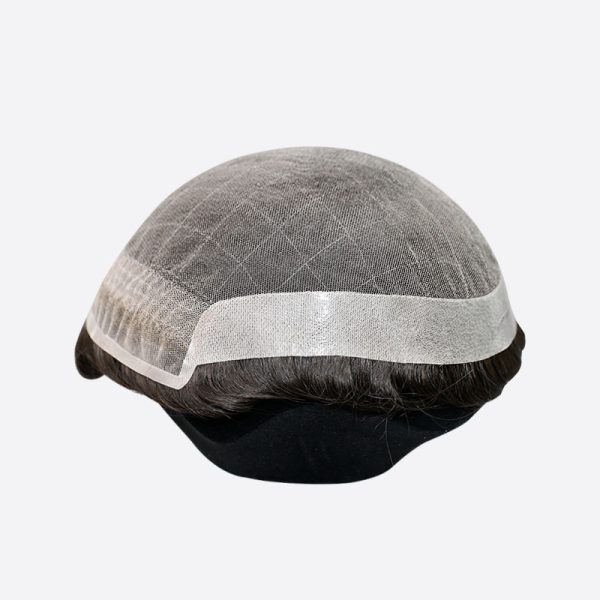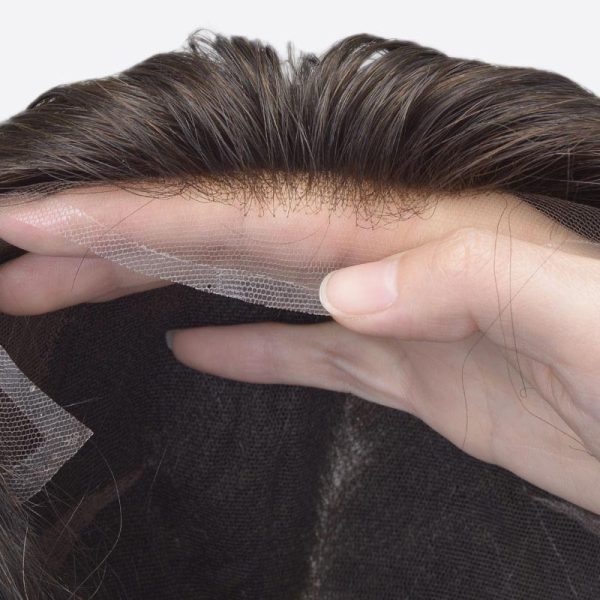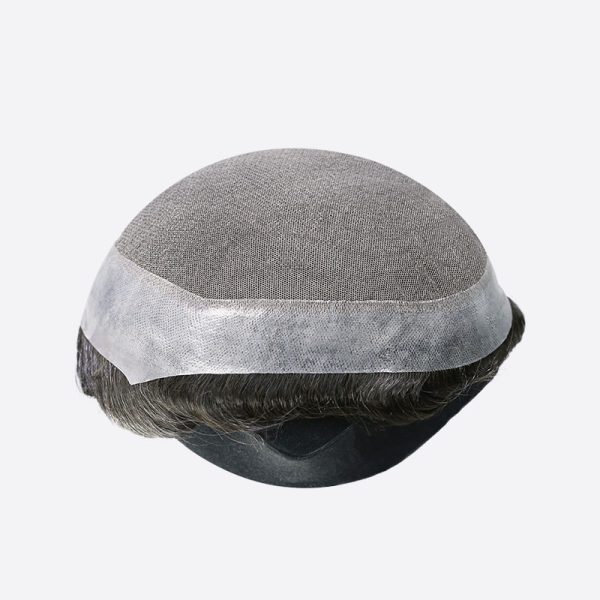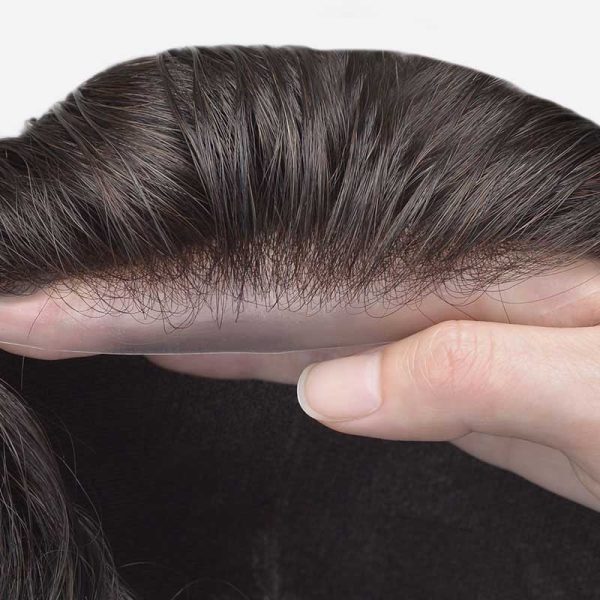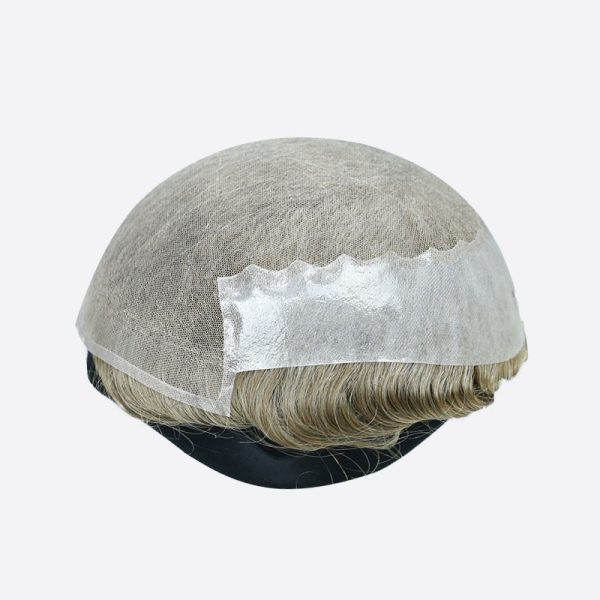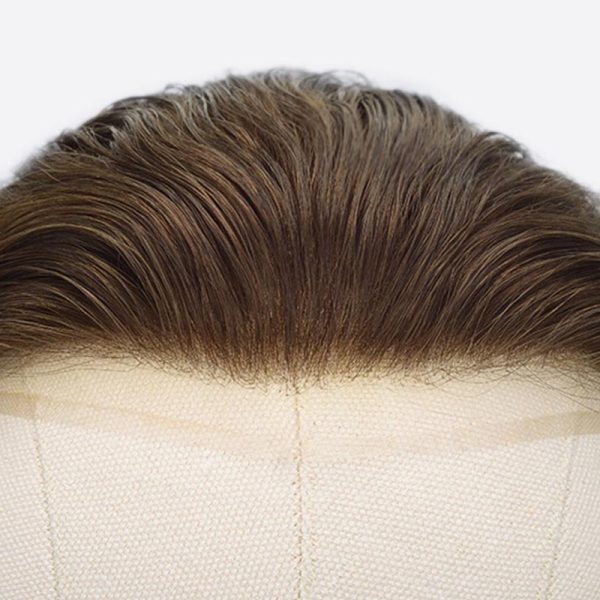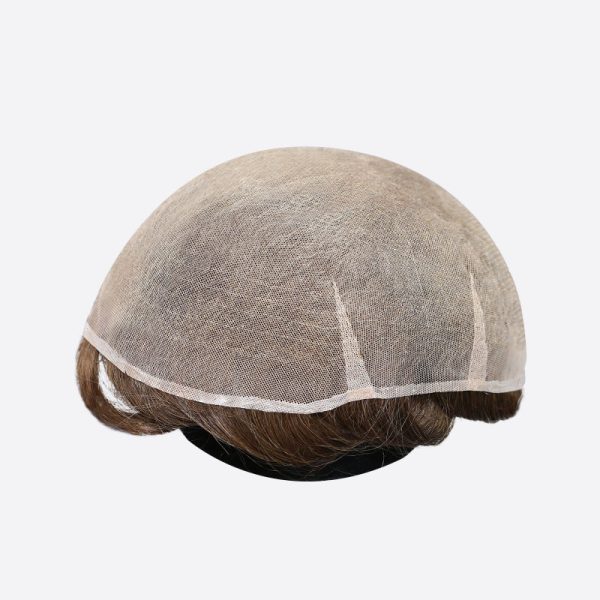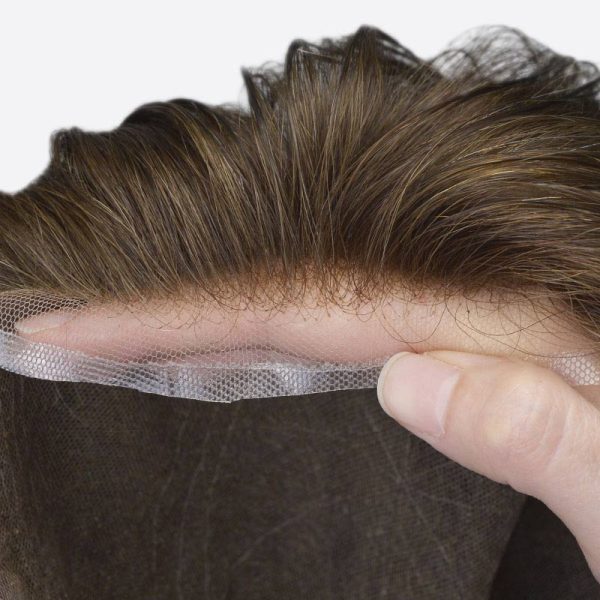We all know that stress can cause our hair to fall out. But did you also realize it could lead to a more detrimental path – giving us a bald spot? Did you know that hair loss is a common side effect of stress?
Stress raises cortisol levels, which interferes with the production and release process in cells responsible for producing sebum (oil) needed by healthy follicles and preventing new ones from growing properly, leading potentially to thinning or eventually total alopecia.
Stress can cause you to have more stress hormones released into your system, which could lead to hair loss. Those who suffer from this condition want more information on how to get their lives back by stopping future thinning or balding and wish to know proven methods that work. If you are also among those, learn about the link between stress and hair loss and how to lessen the impact of stress on your hair.
Introduction
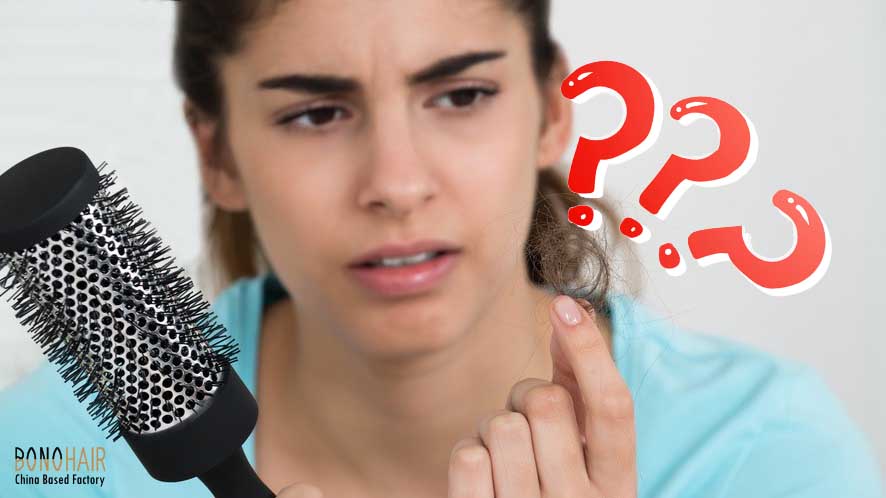
It’s no secret that stress can take a toll on your mental and physical health. But did you know that stress could also be the cause of hair loss? While the relationship between stress and hair loss isn’t fully understood, it is thought that stress may contribute to hair loss by increasing the body’s production of certain hormones.
If you are struggling with hair loss, it is important to find ways to manage your stress levels. Techniques like exercise, yoga, and meditation can help to lower your stress levels and improve your overall well-being. If these techniques don’t work for you, consider talking to a therapist or counsellor who can help you healthily manage your stress.
While it is normal to lose a few strands of hair each day, too much shedding can signify that you are under too much pressure. Fortunately, hair loss linked to stress is not a permanent type of hair loss, and once the stress level goes down, hair starts growing without medications. If you are experiencing hair loss due to stress, you can do a few things to help get your locks back on track.
We will discuss those tricks and treatments later, but first, let’s understand the mechanism behind stress-related hair loss.
How Stress Causes Hair Loss
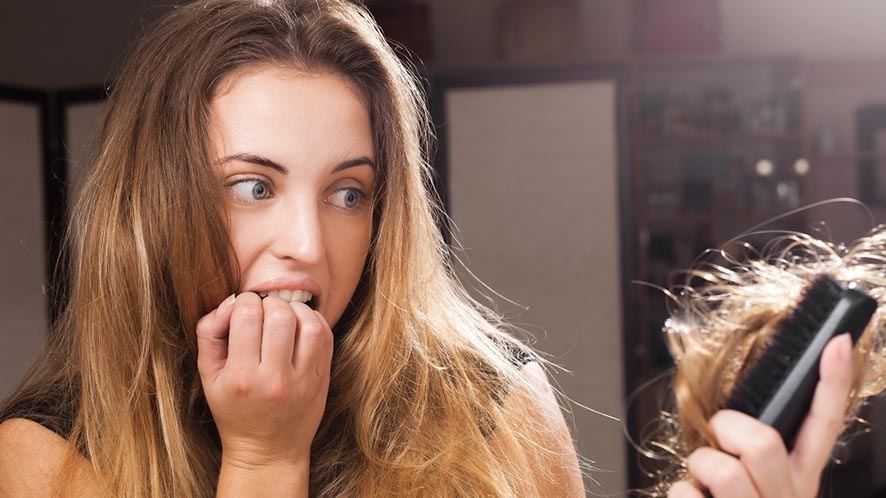
The body’s natural ability to cycle hair can be hindered by stress. This blocks new follicles from growing into healthy strands, which will cause your existing hairs to fall out more easily over time, even if you are washing or combing them. Your hair follicles may stay in a “resting” phase and stop producing new strands with stress. This phase is also called Telogen Effluvium.
When we go through a stressful period in our life, the body’s Partially Dedicated Survival Mechanism (PDSM) kicks into gear. This means that some tissues and organs are now prioritized over others- like diverting energy away from hair growth for more essential things like maintaining blood pressure or heart rate.
This is why people going through a rough phase observe a decline in hair growth, leading to hair thinning and balding in the worst cases. Luckily, the conditions subside as soon as the level of stress decreases, causing the body to return to its normal function, including normal hair growth. So, the next time you feel overwhelmed with stress and start seeing a little more hair in your brush than normal, take heart.
This type of hair loss is only temporary and should reverse once your stress levels subside. In the meantime, here are a few tips for minimizing hair loss during stressful times:
- Avoid tight hairstyles that put tension on your scalp
- Don’t over brush or pull on your hair
- Use a gentle shampoo and conditioner specifically designed for thinning hair.
- Consider using a topical treatment like Minoxidil to help stimulate new hair growth.
How to Reduce Stress and Anxiety

According to the Anxiety and Depression Association of America, anxiety disorders are the most common mental illness in the U.S., affecting 40 million adults. External stimuli like stressors and emotional triggers cannot be controlled. However, there are plenty of ways to lessen the intensity. While there is no one-size-fits-all approach to reducing stress and anxiety, here are some tips that might help;
Practice Relaxation
Healthy habits like daily meditation, maintaining a gratitude journal, and doing yoga are often looked down upon. These activities help clear out negative thoughts facilitating the ability to think rationally. Moreover, yoga and meditation help strengthen muscles and nerves simultaneously.
Take Enough Sleep
Resting and hydrating are the two most abandoned vital habits that help to decrease the stress level. Taking enough sleep recharges the mind and body, enabling the person to do better executive functioning. In short, good sleep leads to better problem-solving.
Plan, Plan, and Plan
Poor time management and disorganized behavior open doors to several stressors. Whenever you feel overwhelmed, take a deep breath and start planning your daily activities. Work according to a proper schedule, and you will be able to achieve more in a day than you normally do.
Planning leads to increased productivity, which is directly proportional to the stress level.
Hair Loss Treatment

There are many different treatments for hair loss, but not all of them are effective. Some people may choose to go with a hair transplant, while others may try a topical treatment like Rogaine.
There are also a number of pills and supplements that claim to help with hair growth. Before trying any new treatment, it’s important to do your research and talk to your doctor to make sure it is the right choice for you.
Here is a quick follow up for different hair loss treatments:
Medication
Minoxidil and Finasteride are the two readily used medications for hair loss. Finasteride is an oral drug, while Minoxidil (rogaine) serves as a topical treatment that is available in the form of medicated hair sprays, shampoos, and lotions. These medications require four to six months before showing results.
Some people may experience slight discomfort while using these medications, such as bloating, nausea, blurred vision, decreased sexual drive, and insomnia. These medications must not be used without consulting a physician.
Hair Transplant
Hair Transplantation is a surgical technique that removes hair follicles from one part of the body, called the “donor site,” to another – called the recipient site, where hair growth has stopped causing bald spots.
The surgical hair transplant process is quite extensive, requiring time and money. The procedure is also a little painful and comes with great post-surgery care. Less painful surgical treatments like laser transplants are now also available; however, the cost of these medical treatments is unaffordable for many. Since hair loss due to stress is only temporary, spending money on such treatments might not be a great idea.
Hair Replacement / Alternative Hair Systems
For hair loss that is not permanent, wigs and toupees work best. These hair systems add desired length and volume while successfully covering bald spots till the original hair does not start growing back.
These alternative hair systems are now available in various colors, lengths, and designs. Most hair systems have real human hair and monofilament bases in which hair strands are hand-tied to lace or silk base to provide a natural-looking hairline. A wide range of wigs and toupees helps men and women cover hair loss due to stress without costing an arm and leg.
Conclusion
Although more research is needed, it is plausible that stress could be a contributing factor to hair fall. If you are experiencing excessive hair fall, it may be worth trying some relaxation techniques such as yoga or meditation to see if they help.
If you find that your hair loss persists even after implementing these measures, consult with your doctor for further evaluation. Early diagnosis may help in recovering faster and maintaining stress levels. Meanwhile, alternative hair systems like wigs, toupees, and extensions can be utilized to show off a head full of hair. Since the hair loss due to stress is temporary and subsides once the stress becomes manageable, using medications or opting for an expensive hair transplant seems relatively unnecessary.
So, if you factor in the zero side-effects and affordability, wigs and toupees are rather a smart choice. However, your scalp may feel sensitive due to extensive hair loss. Therefore, you need a hair system that is specifically designed for sensitive scalp.
Bono Hair crafts such wigs and toupees with excellence. These hair systems are specifically designed for those suffering from medical hair loss to help soothe the irritated scalp.










